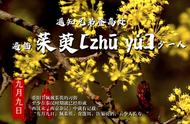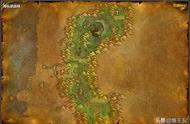金秋时节,天高气爽。今天是重阳节,农历九月初九。
“九九”重阳是怎么来的?重阳节为什么要登高?这一天还有哪些传统习俗?今天就一起来看看吧~

When clear and refreshing autumn arrives and chrysanthemums envelope the world, it's time for the Chinese Chongyang Festival, or Double Ninth Festival, which is celebrated on the ninth day of the ninth month in the Chinese lunar calendar, and falls on October 4th this year.
“九”数在《易经》中为阳数,“九九”两阳数相重,故曰:“重阳”。九九归真,一元肇始,古人认为九九重阳是吉祥的日子。古时民间在重阳节有登高祈福、秋游赏菊、佩戴茱萸及饮宴祈寿等习俗。
“九”在数字也是最大数,又是久长久远的谐音,因此九上又九、九九重阳,含有长长久久、长寿尊贵的隐喻在里面。传承至今,又添加了敬老等内涵,于重阳之日享宴高会,感恩敬老。
21世纪英文报
The festival is based on the theory of yin and yang that forms the basis for the ancient Chinese worldview. Yin represents the elements of darkness and yang represents brightness. Even numbers belong to yin and odd numbers are yang. The ninth day of the ninth lunar month is a day when the two yang numbers meet, so it is called Double Ninth, chongyang in Chinese.
In Chinese folklore, the number nine is the largest number - it's a homonym to the Chinese word jiu, which contains the auspicious meaning of "a long and healthy life". It has long been a day for Chinese to show care, love and respect to the elderly.

登高辞青

重阳节之所以要登高,是因为古人认为在这天登高可以躲避灾祸,同时还有登高祈福(to climb mountains to pray for good luck)的说法。重阳登高习俗源于此时的气候特点以及古人对山岳的崇拜。登高“辞青”也是源于大自然中的节气,重阳节登山“辞青”与古人在阳春三月春游“踏青”相对应。如今,重阳节已经成为和家人朋友一同出游,共赏秋景的好时节。
Ancient people believed in climbing the mountains to avoid disaster with the whole family climbing as high as possible to be healthy and stay safe from the plague.
Today, it's a great opportunity to join friends and relatives and enjoy the fall scenes.



























